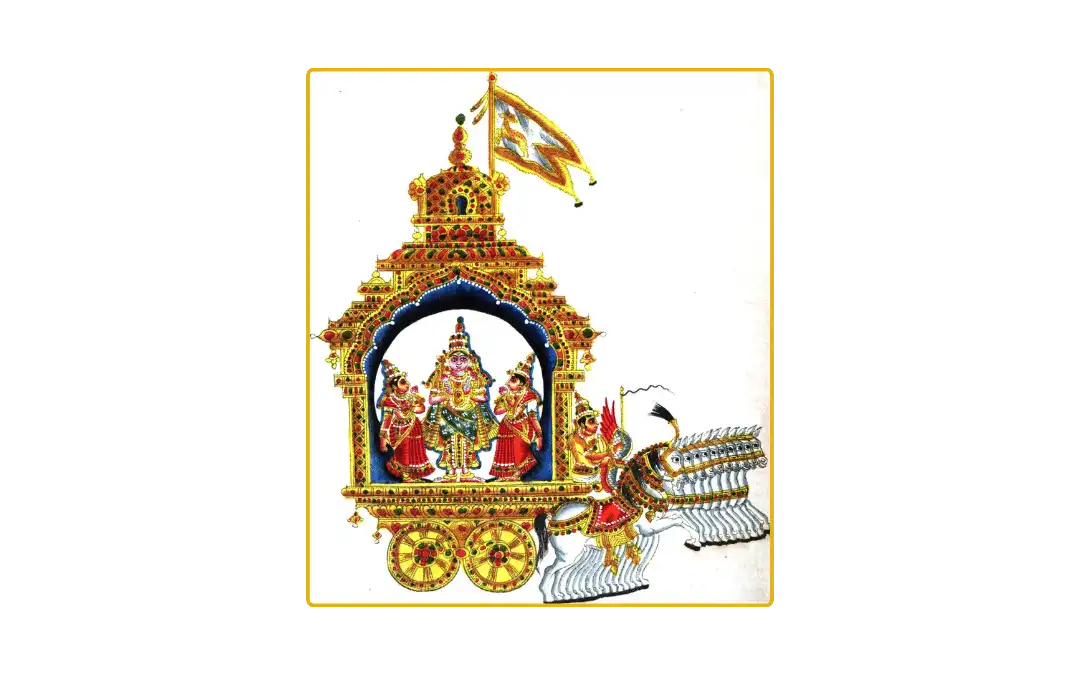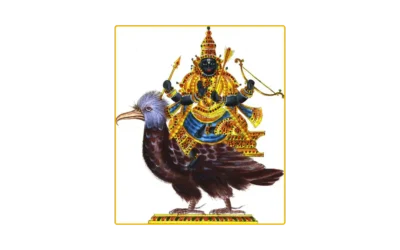In Vedic astrology, the Moon is very important. It tells us a lot about a person’s feelings, emotions, and the way they think deep inside. The Moon is like a big mirror in the sky that reflects the light of the Sun. It represents our mind, our feelings, and the things we might not even know about ourselves.
When we look at where the Moon is placed in someone’s birth chart and how it interacts with other planets, we can understand a lot about their emotional nature, how they react to things without thinking, and what’s going on inside their heart and mind.
Table of Contents
The Moon’s Astronomical Characteristics
The Moon, Earth’s celestial companion, is the closest astronomical body to our planet. With a diameter of approximately 3,474 kilometres, it orbits Earth at an average distance of 384,400 kilometres. The Moon’s gravitational pull influences the tides on Earth, and its phases, from the new moon to the full moon, mark the passage of time and the cyclical nature of life.
Astrological Significance of the Moon
In Vedic astrology, the Moon represents the mind, emotions, and the subconscious. It governs an individual’s emotional responses, intuitive understanding, and the way they nurture and care for others. The Moon’s position in a birth chart indicates how a person processes feelings, reacts to life’s challenges, and seeks emotional security.
Moreover, the Moon is associated with memory, imagination, and the ability to adapt to changing circumstances. It reflects an individual’s capacity for empathy, their connection to their inner world, and their receptivity to the emotions of others.
A well-placed Moon in the birth chart suggests emotional stability, strong intuition, and the ability to find comfort and security within oneself.
Moon in Different Zodiac Signs
The Moon’s expression and influence vary depending on the zodiac sign it occupies at the time of an individual’s birth. Each sign imbues the Moon with its distinctive qualities, modifying the emotional landscape and shaping the individual’s instinctive responses accordingly.
- Aries: The Moon in Aries brings emotional intensity, impulsiveness, and a strong desire for independence.
- Taurus: With the Moon in Taurus, emotional stability, security, and sensual pleasures become paramount.
- Gemini: The Moon in Gemini indicates a curious, adaptable, and intellectually stimulated emotional nature.
- Cancer: When the Moon is in its home sign of Cancer, emotions run deep, and nurturing instincts are heightened.
- Leo: The Moon in Leo brings a desire for emotional recognition, warmth, and creative self-expression.
- Virgo: With the Moon in Virgo, emotional practicality, organization, and a desire for perfection come to the forefront.
- Libra: The Moon in Libra indicates a strong need for emotional harmony, balance, and partnership.
- Scorpio: When the Moon is in Scorpio, emotions become intense, profound, and transformative.
- Sagittarius: The Moon in Sagittarius brings emotional adventurousness, optimism, and a philosophical approach to feelings.
- Capricorn: With the Moon in Capricorn, emotional maturity, responsibility, and a desire for stability become prominent.
- Aquarius: The Moon in Aquarius indicates an emotionally detached, unconventional, and humanitarian approach to feelings.
- Pisces: When the Moon is in Pisces, emotions become highly intuitive, compassionate, and imaginative.
Moon in Different Houses
In Vedic astrology, the twelve astrological houses represent various areas of life, such as self, family, career, relationships, and spiritual growth. The Moon’s placement in a particular house of an individual’s birth chart highlights the areas of life where they are likely to experience emotional fulfilment, seek to nurture and find a sense of belonging.
- Moon in 1st House: The Moon in the First House emphasizes emotional self-expression and personal instincts.
- Moon in 2nd House: With the Moon in the second house, emotional security and material comfort are important.
- Moon in 3rd House: The Moon in the third house indicates a strong emotional connection to communication and learning.
- Moon in 4th House: When the Moon is in the fourth house, emotional attachment to home and family is paramount.
- Moon in 5th House: The Moon in the fifth house brings emotional fulfillment through creativity, romance, and children.
- Moon in 6th House: With the Moon in the sixth house, emotional well-being is tied to service and daily routines.
- Moon in 7th House: The Moon in the Seventh House emphasizes emotional fulfillment through partnerships and social interactions.
- Moon in 8th House: When the Moon is in the eighth house, emotions are deeply transformative and intense.
- Moon in 9th House: The Moon in the ninth house indicates a strong emotional connection to higher learning and spiritual growth.
- Moon in 10th House: With the Moon in the tenth house, emotional fulfillment is sought through career and public recognition.
- Moon in 11th House: The Moon in the eleventh house brings emotional satisfaction through friendships and humanitarian pursuits.
- Moon in 12th House: When the Moon is in the twelfth house, emotions are deeply introspective and spiritually inclined.
Moon in Aspect with Other Planets
In Vedic astrology, the angular relationships between planets, known as aspects, play a vital role in modifying the expression and influence of the celestial bodies involved. The Moon’s aspects with other planets in the birth chart create specific energetic patterns that color the individual’s emotional life, intuitive abilities, and subconscious tendencies.
- Moon-Sun: This aspect can intensify emotions and bring a strong desire for recognition and validation.
- Moon-Venus: The Moon aspecting Venus enhances emotional harmony, creativity, and a love for beauty and relationships.
- Moon-Mars: When the Moon aspects Mars, emotions become passionate, assertive, and impulsive.
- Moon-Mercury: The Moon aspecting Mercury enhances emotional communication, intuition, and adaptability.
- Moon-Jupiter: This aspect expands emotions, bringing optimism, generosity, and a philosophical approach to feelings.
- Moon-Saturn: When the Moon aspects Saturn, emotionsbecome more serious, responsible, and disciplined.
- Moon-Rahu: The Moon aspecting Rahu intensifies emotions and brings a strong desire for emotional excitement and new experiences.
- Moon-Ketu: When the Moon aspects Ketu, emotions become more introspective, spiritual, and detached.
Effects and Remedies of Moon
If the Moon is not favourable in your horoscope, it is referred to as polluted. The moon represents the mind. That is why Moon-related astrological measures are adapted to solve problems concerning the mind.
- Consume milk or water in silver utensils to help remove the negative influence of the Moon.
- Wear white clothes and consume kheer (pudding) made from milk, rice, and sugar on Mondays.
- Pray to Lord Shiva, as Ganesha particularly warns against wasting water according to astrological remedies.
- Wear a Moti (Pearl) to gain blessings from the Moon, based on the placement of other planets in your Kundali.
Conclusion
The Moon is a very important part of Vedic astrology. It’s like a bright light that helps us see and understand our emotions and feelings. Where the Moon is placed in our birth chart and how it connects with other planets can tell us a lot about how our mind works, the things we don’t always know about ourselves, and how we feel deep down inside.
If we listen to what the Moon is trying to tell us and learn from it, we can grow emotionally. We can take care of our ability to connect with our true selves and build stronger relationships with the people around us.
So, the Moon is like a wise friend that guides us to understand ourselves better and create a happier life by being in touch with our emotions.
Frequently Asked Questions
Q1. What are the signs ruled by the Moon?
The Moon is the ruler of one sign in Vedic astrology – Cancer. It is considered very emotional, nurturing, and intuitive when placed in this sign.
Q2. How long does the Moon stay in each sign?
The Moon remains in one sign for about 2.5 days before moving to the next. This means it takes around 28 days to travel through the entire zodiac, completing a full lunar cycle.
Q3. What are the qualities of a strong, well-placed Moon in a birth chart?
A person with a strong, well-placed Moon is emotionally balanced, intuitive, nurturing, and compassionate. They have a strong connection to their inner self, a good memory, and the ability to form deep emotional bonds. The Moon brings emotional intelligence, adaptability, and a caring nature.
Q4. What does the Moon represent in Vedic astrology?
The Moon signifies emotions, mind, motherhood, and nurturance. It governs our emotional needs, subconscious mind, memory, and the ability to adapt to change. A strong Moon bestows emotional stability, intuition, and the capacity for empathy and care.
Q5. What are some remedies for difficult Moon transits or placements?
Some traditional Vedic remedies for challenging Moon periods include wearing pearls, making offerings to one’s mother or nurturing figures, practising self-care and emotional self-regulation, and connecting with nature, especially near bodies of water. Cultivating forgiveness, emotional balance, and a nurturing attitude towards oneself and others can also help balance a difficult Moon.

Surya, an MBA graduate from Manipal University Jaipur and a B.Com graduate from Delhi University, discovered his passion for astrology in 2013 after the untimely demise of his father, Shri Mahendra Deo Sankrityayan, in 2011. Seeking answers, he immersed himself in Vedic scriptures and sought guidance from learned gurus in Kashi. Through this journey, Surya gained a profound understanding of both psychology and astrology at a young age.



